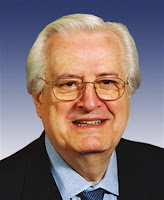2016 marks the 40th anniversary of the “Hyde Amendment,” named for prolife champion the late Rep. Henry Hyde (R-Il). The Hyde Amendment is conservatively credited with saving the lives of over a million people.
First enacted in 1976, the Hyde Amendment is a provision attached to the annual appropriations bill that covers many federal health programs (including Medicaid). The Hyde Amendment currently prohibits the use of federal funds in those programs for abortion, except in the cases of rape, incest or to save the life of the mother.
Initially blocked by a federal judge, the Hyde Amendment was upheld by the U.S. Supreme Court in 1980 in Harris v. McRae by the narrowest of margins, 5-4. The justices said Congress could distinguish between abortion and “other medical procedures” because “no other procedure involves the purposeful termination of a potential life.”
While the Supreme Court did not back away even a little from its 1973 conclusion that a woman had a right under the Constitution to an abortion, the justices concluded the government was not required to fund the exercise of that right.
Click here for more from National Right to Life.

